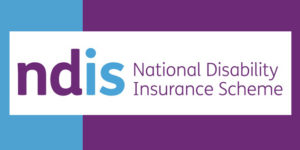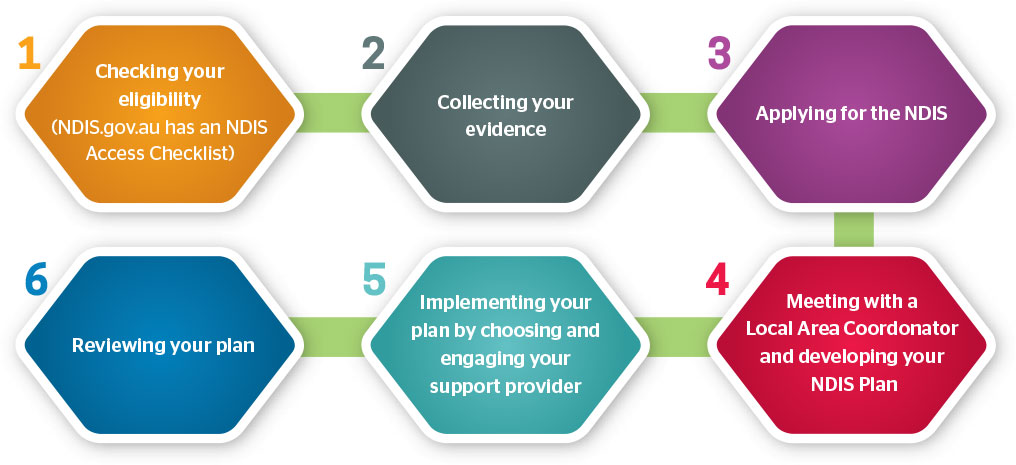NDIS for Hearing Aids
 The National Disability Insurance Scheme, or the NDIS, is implemented by The National Disability Insurance Agency (NDIA), and will provide support for the approximately 460,000 Australian’s under the age of 65 who currently live with a significant or permanent disability, as well as their families and carers.
The National Disability Insurance Scheme, or the NDIS, is implemented by The National Disability Insurance Agency (NDIA), and will provide support for the approximately 460,000 Australian’s under the age of 65 who currently live with a significant or permanent disability, as well as their families and carers.
They key aim of this scheme is to make everything required for those with a disability to live a normal life available. This is done with the knowledge that all participants of the NDIS are individuals who have different needs, preferences, and aspirations. Therefore, the NDIS provides a range of personalised services and supports including helping with hearing aids.
This includes supporting those with a disability by building their skills and self-efficacy in order for them to continue to be able to participate in the community and workforce.
Other ways in which the NDIS supports those with a disability include;
- Access to mainstream services and supports: such as doctors, teaching, public housing, as well as the justice and aged care systems
- Access to community services and supports: such as sporting clubs, community groups, libraries, and charities
- Funded supports for reasonable and necessary requirements: such as those that are directly related to the person’s disability, and are required in order for them to live an ordinary life and achieve goals.
Disability requirements of the NDIS include;
- An impairment that is likely to be permanent and substantially reduces your ability to participate in activities or complete tasks without the assistance of others or assistive technology, such as hearing aids
- An impairment that completely inhibits your ability to complete tasks, regardless of assistance
- An impairment that affects your ability to participate socially and economically (i.e. find employment).
Assistance from the NDIS has no impact on income support from the Disability Support Pension or Carers Allowance.
How does the NDIS affect the Hearing Services Program?
The Hearing Services Program will be transitioned in-part to the NDIS by mid-2019, alongside 17 other existing Commonwealth programs that provide support for those with a disability. This transition will affect a small percentage of those who are currently in the Hearing Services Program, with the majority being able to continue to receive the high-quality hearing services and supports that this program provides. Unlike the Hearing Services Program which provides hearing services and supports to those eligible in order to reduce the consequences of hearing loss, the NDIS provides supports for Australians with permanent or significant disability under 65 years in order to live an ordinary life.
As the transition will be completed in mid-2019, the Hearing Services Program will continue to run after this date, as the majority of its clients will not be eligible for the NDIS.
Therefore, only a small percentage of Hearing Services clients will be transitioned to the NDIS. Those who are registered with the NDIS by mid-2019 will no longer be permitted to receive hearing services and supports through the Hearing Services Program, as their supports will now be provided by the NDIS. Through the NDIS, you will be able to receive funding for hearing aids, as well as for individuals who rely on Auslan.
This can include funding for having an Auslan interpreter during medical appointments.
Who is eligible for the NDIS?
Based on the NDIS Operational Guidelines, children and young adults under 26 years, and adults classed as complex clients will be eligible for the NDIS, and therefore most likely to become NDIS participants. You can find out if you are classified as a complex client through your service provider. If you are identified as a member of either of these groups, you will be contacted by the NDIS by mid-2019 to determine whether access to the NDIS is possible.

This will occur once the NDIS is available in your area. If you are contacted by the NDIS and are currently a client of the Hearing Services Program, it is recommended that you do make the transition to the NDIS as with them, you will receive services and supports that is equivalent to what you receive from the Hearing Services Program, as well as additional support that is funded by the NDIS.
Who will I get my services from?
Until you are contacted by the NDIS, you will still be able to receive your hearing services and supports through the Hearing Services Program. Furthermore, if you become eligible for the NDIS prior to mid-2019, you will be able to receive hearing services from both the NDIS and Hearing Services Program.
If you are not eligible for the NDIS, you will continue to receive your supports and services through the Hearing Services Program as long as you are eligible. It is also possible that until mid-2019, if you are not a client of the Hearing Services Program but are eligible for NDIS, you will be referred to the Hearing Services Program if you require a service.
This referral is done by your NDIS planner through the completion of an application on your behalf. Once this is processed, you will be required to provide a medical certificate, regardless of whether you have hearing aids.
How will this affect hearing service providers?
If you provide the services, you can continue to do this for both NDIS participants and Hearing Services Program clients until mid-2019. You can begin providing services and support to NDIS participants once their application has been processed and they are issued a welcome pack.
If the participant is under the age of 26, their NDIS planner will refer them to Australian Hearing. You do not need to register as a NDIS provider, as you are already recognised by the NDIS as a provider of hearing services for NDIS participants until mid-2019. After this time, the Hearing Services Program will not be providing services, support, or accepting claims for NDIS participants. However, you can still provide services to NDIS participants, just not through the Hearing Services Program.
In order to deliver, claim, and provide services and supports for NDIS participants after mid-2019, you will be required to register with the NDIS. You can still provide services for clients of the Hearing Services Program, as well as accept their claims as usual. Regarding stakeholders; you will be informed about how the NDIS affects your program through the Contracted Service Provider Notices (CSPN), Hearing Services Program website, or the NDIS website.
Conclusion:
As a NDIS participant, you will have access to the same services and supports as those in the Hearing Services Program, including assistance with hearing aids.
If you wish to claim for hearing services once you are a NDIS participant, this can be done in the same way it is done for Hearing Services Program clients; through the Hearing Services Online portal, or through the Department of Human Services e-claiming system.
Contact us on 1300 848 335 today for more information regarding the NDIS and how it may affect you.
